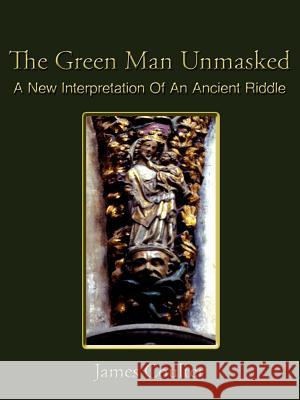The Green Man Unmasked: A New Interpretation of an Ancient Riddle » książka
The Green Man Unmasked: A New Interpretation of an Ancient Riddle
ISBN-13: 9781420882865 / Angielski / Miękka / 2006 / 136 str.
A relic from our pagan past; a fertility symbol; the spirit of vegetation; Jack-in-the-Green, Herne the Hunter or Robin Hood-all of these descriptions and many more have been advanced to explain the identity of the strange and often outlandish image which glares so balefully from rood screen and roof boss in so many places of Christian worship throughout Western Europe. Invariably depicting a male human head, it is by any reckoning a most unusual image and while exhibiting countless variations, the predominant feature common to all is the vegetation issuing in luxuriant profusion from the mouth and coiling around the head in fantastic shapes and patterns; a feature which has no known counterpart in nature. It is the 'Green Man' so-called by generations of environmentalists and folklore enthusiasts. But such interpretations beg the question-why does the image occur predominantly within a Christian context with a frequency second only to that of Christ Himself. . Who is the 'Green Man' and what does his widespread presence signify? The author believes that the answer to this age-old riddle may be found in a number of medieval works such as the apocryphal gospels, the Bestiary and the Legend of the Rood all of which would have been familiar to scholars and teachers of the period. Although never part of the official canon, these nevertheless had a considerable influence on the teaching of the medieval Church and the imagery which it employed to illustrate it for the benefit of illiterate or semi-literate congregations. The present study represents a radical departure from the previously received wisdom on the subject and advances the hypothesis that far from being a pagan fertility symbol, the 'Green Man' is a lead player in the great scriptural drama of the Creation, the Fall of Man and his ultimate redemption.











